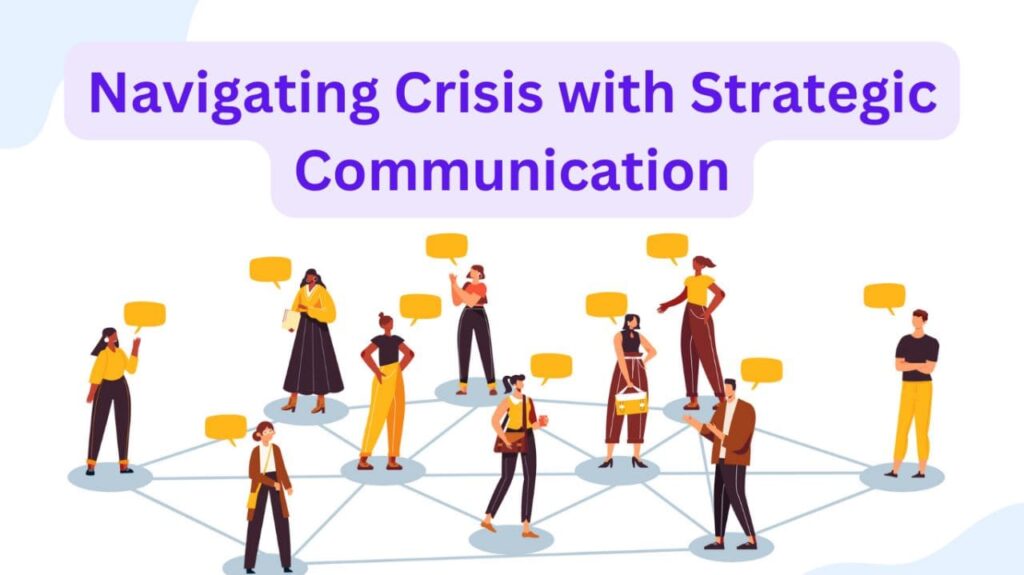For any business, ups, and downs are a daily story. A crisis can strike when one expects the least, and it can tarnish a brand’s reputation, erode consumer trust, and even lead to financial losses. However, if a company deals with the same effect, it can make all the difference. Something similar happened with Maggi, India’s most beloved instant noodle in the year 2015. This blog post shall discuss the reasons why the crisis happened and how Nestle, the parent company which owns the brand dealt with the entire crisis.
Before beginning to navigate through the crisis, let us first understand the brand. Maggi is a Swiss brand owned presently by Nestlé S.A, a Swiss multinational food and drink processing conglomerate corporation headquartered in Switzerland. It is popular for manufacturing instant soups, noodles, and seasonings across the world. The original company was founded by Julius Maggi in the nineteenth century which had initially come up with the goal of providing high-quality instant foods to factory laborers who were otherwise suffering from poor health, malnutrition, and other issues. The brand had first come to India in the year 1983 and the first product, which the establishment introduced into the Indian market was its’ instant noodles. These noodles no sooner became extremely popular with the Indians, and today, these noodles control almost 80 percent of India’s instant noodles market. Alongside, keeping in mind the trends of changing India, these noodles too have changed over time. For instance: Alongside the regular 2-minute Maggi, now one can also find various other brands such as Atta Maggi, Vegetable Atta Maggi, Oats Maggi, and Maggi in Asian flavors and Indian flavors among others.
Maggi, over the years, had become not just a packet of instant noodles but an emotion. Almost everyone in India has had their own story of Maggi. However, this emotion, almost a decade ago, was about to vanish. This packet of noodles, which had often served as comfort foods to most of the Indians was about to vanish.
In the year 2015, during a surprise inspection by the Food Safety and Standards Authority of India(FSSAI) at the Barabanki plant of Nestle, the samples of Maggi found had reports of higher than permissible levels of lead and the presence of Monosodium Glutamate(MSG) was released and thereafter, the noodles were deemed unfit for consumption. This led to multiple controversies with most states banning the sale and purchase of these noodles, FIRs being filed against the Bollywood celebrities Amitabh Bachchan, Madhuri Dixit, and Preity Zinta for their alleged role in promoting such harmful products and these noodles were also under scrutiny by the British government. Within a period of three days, the sale of these noodles was banned by the central govt for an indefinite period.
The parent establishment soon realized the brevity of the crisis and also recognized the importance of transparent communication. They acknowledged the concerns raised by consumers and regulatory authorities, taking immediate steps to address them. Nestlé promptly recalled the Maggi noodles from the market and cooperated fully with the authorities during the investigation. To regain consumer confidence, Nestlé embarked on a comprehensive communication campaign. They utilized multiple channels, including press conferences, social media, and advertisements, to share information about the testing protocols, quality control measures, and safety standards employed by the company. By openly sharing their processes, Nestlé aimed to rebuild trust and demonstrate their commitment to consumer welfare.
Alongside, Nestlé recognized this and engaged with influential figures to support their communication efforts during the Maggi crisis. They enlisted prominent celebrities, nutritionists, and experts who vouched for the safety and quality of Maggi noodles based on their personal experiences and understanding of the situation. By involving credible voices, Nestlé aimed to counter the negative narrative surrounding the brand. This strategic approach helped in disseminating positive messages and addressing concerns effectively, reaching a broader audience and rebuilding trust.
During a crisis, engaging stakeholders play a pivotal role in restoring trust and mitigating the damage. Nestlé understood the significance of involving all relevant parties, including consumers, retailers, distributors, and government agencies. They initiated direct communication channels to address queries and concerns, ensuring transparency and accountability.
Additionally, Nestlé collaborated with external experts and laboratories to conduct rigorous testing of their products. The company also established open lines of communication with regulatory authorities to demonstrate compliance with safety standards. These proactive measures helped in establishing Nestlé as a responsible and reliable brand, further strengthening its credibility.
The Maggi crisis provides invaluable lessons for companies facing similar challenges. Firstly, it emphasizes the importance of proactive crisis management. Nestlé’s swift response and transparent communication helped them control the narrative and minimize reputational damage. Secondly, the crisis highlighted the power of engaging stakeholders, influencers, and brand advocates to amplify positive messages and rebuild trust. Furthermore, the Maggi story showcases the significance of ongoing monitoring and compliance with regulatory standards. Companies must prioritize product safety and quality assurance measures to prevent crises before they occur. Lastly, the crisis underscores the importance of a robust crisis communication plan. Being prepared and having a well-defined strategy in place can make a world of difference in navigating turbulent times.As businesses continue to face unforeseen challenges, the Maggi case study provides valuable insights for organizations to emulate. By prioritizing transparent communication, engaging with stakeholders, upholding quality standards, and being prepared for crises, companies can navigate turbulent times and emerge stronger on the other side. Remember, crises are not the end but an opportunity to showcase resilience, integrity, and commitment to consumer welfare. The Maggi story will continue to inspire future generations of business leaders to embrace strategic communication as a powerful tool in managing crises and safeguarding their brands.

